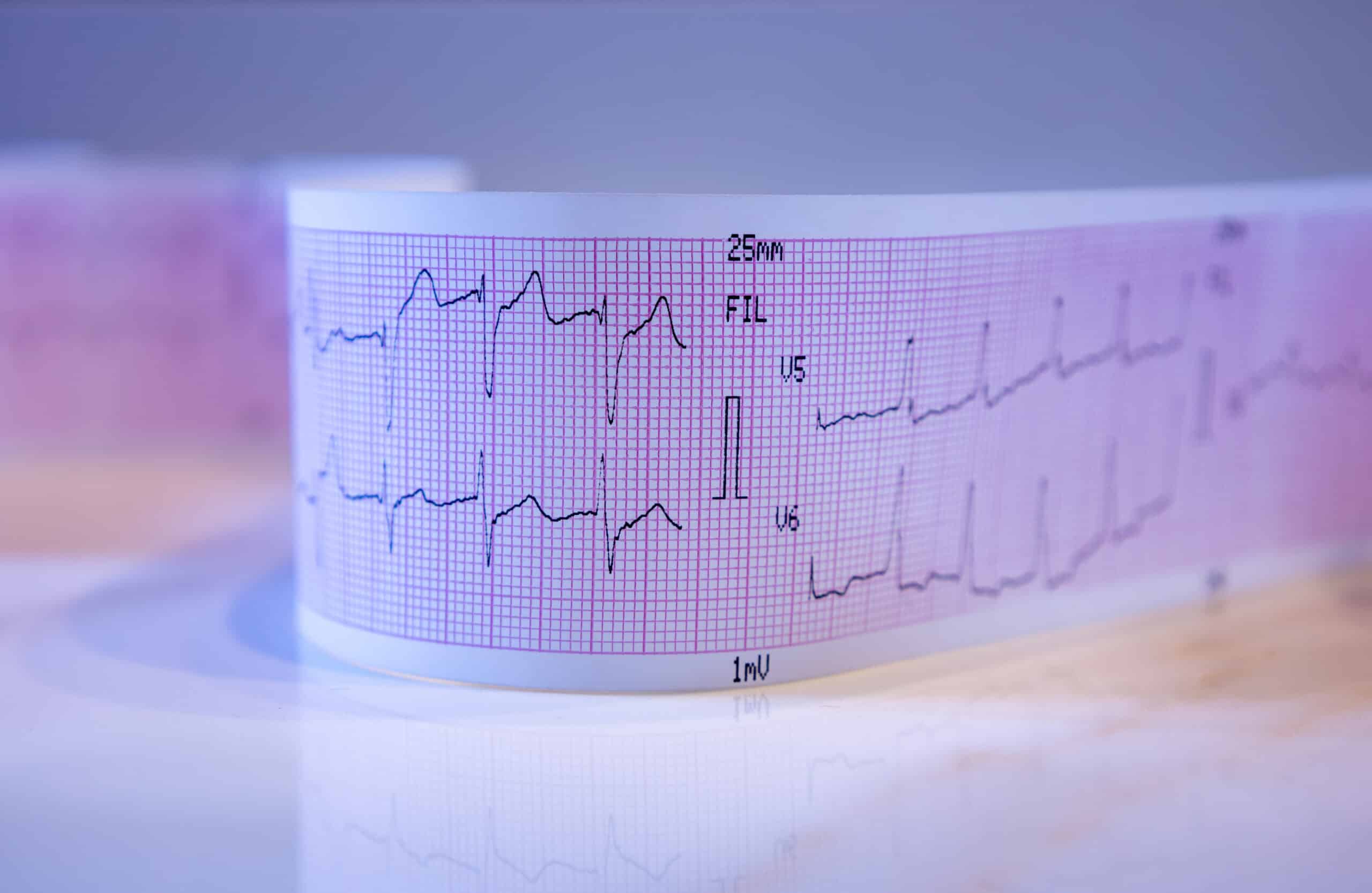Atrial Fibrillation Treatment in Columbus, GA
Atrial Fibrillation Care for Patients Throughout West Central Georgia and East Central Alabama
Atrial fibrillation (AFib) is a type of heart disorder wherein the heartbeat is disrupted, causing an irregular rhythm and dangerous side effects.
Once developed, AFib cannot be medically cured. However, it is manageable with dedicated care from a compassionate team like the one at Southeastern Cardiology. With proper treatment and management, our cardiologists can help you control and, in some cases, even reverse your atrial fibrillation.
settingsSchedule Treatment for Atrial Fibrillation Today: 706-243-4500
What Is Atrial Fibrillation?
Atrial fibrillation is a type of arrhythmia that develops when the upper and lower chambers of the heart fall out of sync with one another. In a healthy patient, the upper chambers and lower chambers of the heart operate together at a steady pace to pump blood into the heart and out to the circulatory system. For a patient with atrial fibrillation, the heart’s upper chambers (the atria) work too quickly, disrupting the rhythm that should be set with the lower chambers (the ventricles).
Blood that should be pumped at a steady pace can begin to pool in the heart, instead, increasing the patient’s risk of blood clots, heart attacks, stroke, heart failure, and more.
While there is no medical cure for atrial fibrillation, it can be managed and even reversed with proper care and treatment methods.

Atrial Fibrillation Treatment From Southeastern Cardiology
The cardiologists at Southeastern Cardiology can diagnose and treat patients with atrial fibrillation, helping them control their heartbeat and improve their heart function. When diagnosing and treating AFib, it’s crucial to identify and address potential causes or factors exacerbating the condition.
Exam
In the exam portion, you and your cardiologist will talk about your medical history and symptoms, including details like:
- Family history of cardiac issues
- Personal history with cardiac issues
- Lifestyle habits, such as diet and exercise routines
- Average alcohol consumption
- Average tobacco use
- Current medication regimen
You will also undergo a physical exam where your cardiologist will take your blood pressure and listen to your heart, checking for signs of atrial fibrillation or other heart complications.
Testing
In addition to a physical exam, we may also require tests like:
- Echocardiogram
- Heart monitoring (24-hour or 30-day monitoring)
Treatment
While there is no cure for atrial fibrillation, there are treatment methods to control or even correct your irregular heartbeat and improve your heart health. Some management efforts may include:
- Medications, including beta-blockers, calcium channel blockers, blood thinners, or anticoagulants
- Cardioversion therapies
- Surgical solutions, including cardiac ablation or Watchman™ implantation
- Improving diet
- Improving sleep
- Quitting smoking
- Quitting alcohol or drug use
- Managing high blood pressure
- Developing a more active lifestyle
In some cases, atrial fibrillation patients may require care from an electrophysiologist—a cardiologist who specializes in the heart’s electrical system—for further management.
Schedule an Atrial Fibrillation Evaluation: Call 706-243-4500 Today.
Symptoms, Causes, and Risk Factors of Atrial Fibrillation
Atrial fibrillation is sometimes considered a form of heart disease, but there are other ways and reasons a patient may develop AFib.
Atrial Fibrillation Symptoms
Symptoms vary from patient to patient, but common symptoms include:
- Heart palpitations
- Irregular heartbeat
- Rapid heartbeat
- Shortness of breath
- Chest pains
- Blood clots
- Fatigue
- Physical weakness
- Dizziness
- Confusion
Keep in mind that not all AFib patients experience noticeable symptoms. It’s possible to have an irregular heartbeat but not know it.
Atrial Fibrillation Causes
It’s possible to develop AFib as a result of:
- Congestive heart failure
- Coronary artery disease (CAD)
- High blood pressure
- Heart attack
- Heart valve disease
- Congenital heart defects
- Sleep apnea
- Lung disease
- Thyroid disease
- Viral infection
Atrial Fibrillation Risk Factors
You’re more at risk of developing atrial fibrillation if you:
- Are 65 or older
- Have a family history of atrial fibrillation
- Have a history of heart complications or heart attacks
- Have had heart surgery
- Have high blood pressure
- Smoke or use other tobacco products
- Abuse alcohol or use drugs like cocaine
- Consume too much caffeine
- Are overweight or obese
- Have other long-term health issues like thyroid disease, kidney disease, lung disease, or sleep apnea

Southeastern Cardiology Cares for Your Heart
Southeastern Cardiology is dedicated entirely to your heart health for the benefit of your overall health and well-being. We strive to make sure you have a positive experience receiving cardiovascular care from our heart doctors by combining fast appointment scheduling with compassionate and honest communication and cutting-edge solutions. In addition to our atrial fibrillation care, we offer healthcare solutions for all cardiac conditions you may be experiencing or suffering from.
- Congestive Heart Failure
- Coronary Artery Disease
- Hypertension
- Other Conditions
Conditions We Treat
- In-Office Services
- In-Hospital Procedures